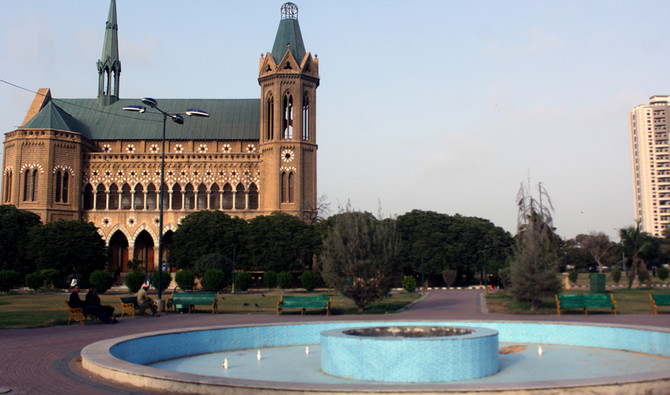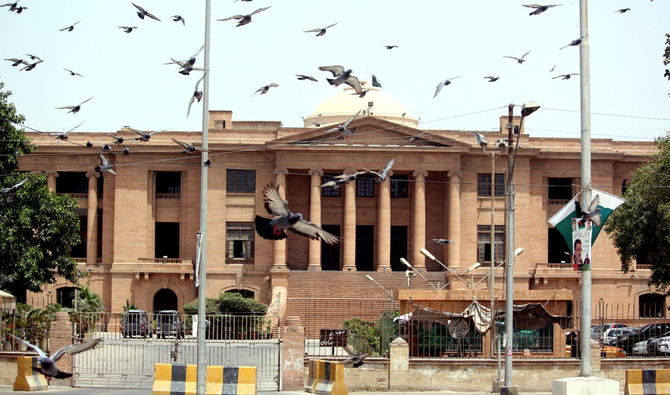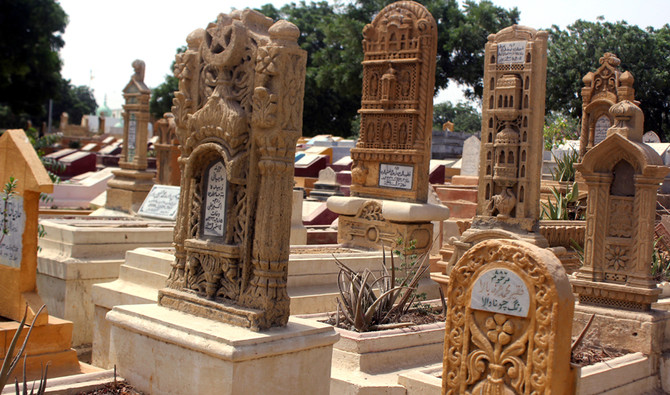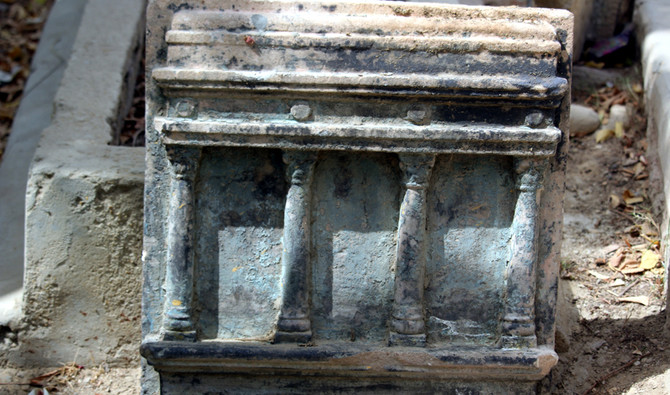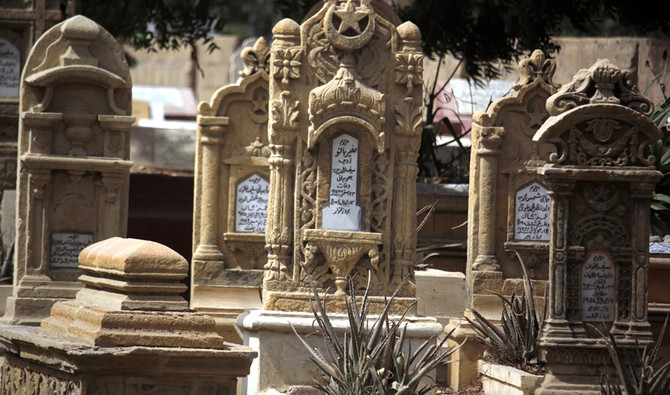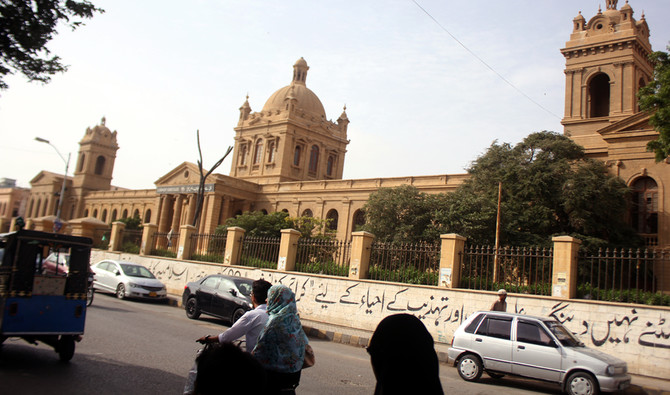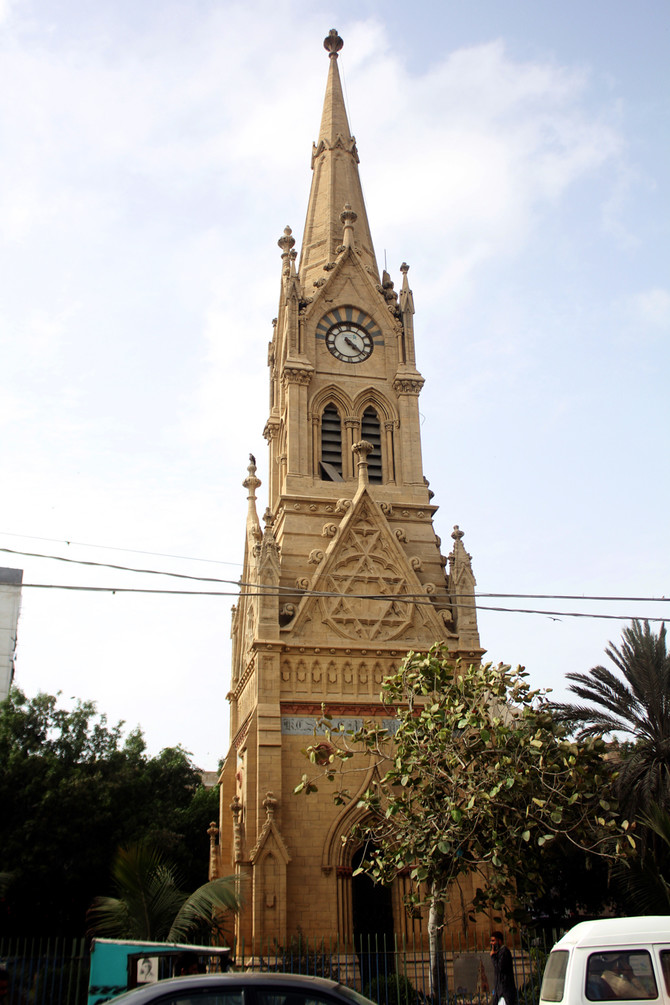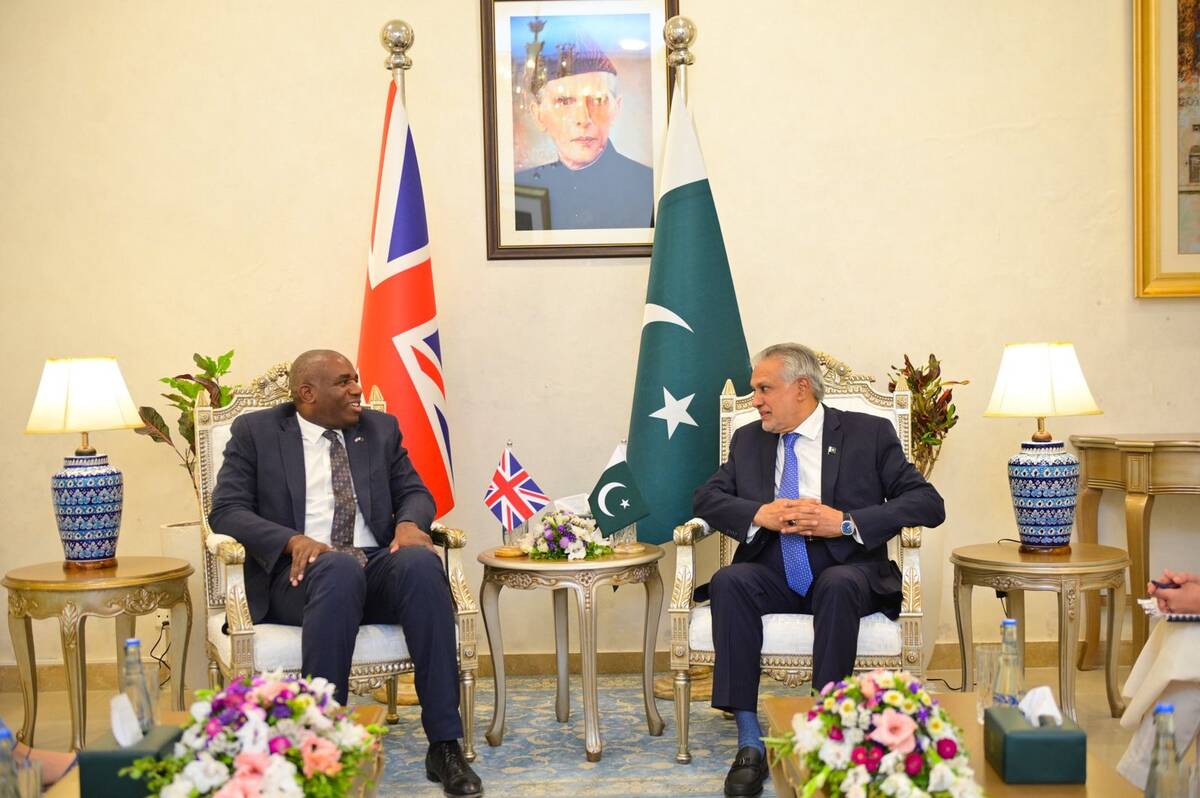KARACHI: Next time you see the Taj Mahal, remember that there is a little bit of Karachi in it too.
“Our ancestors were among the people who [worked on the stones used in building] the Taj Mahal and the Jaisalmer Fort. You can see images of those buildings here,” Shakir Ali, caretaker of Karachi’s Silawat graveyard, told Arab News, pointing at one of the tombstones in the area.
The cemetery, located in the Dhobi Ghat area of the city, is just one extension of the Silawats – a community that migrated to Sindh from India’s Rajasthan in the 19th century.
Statistics from the 2017 population census estimate that there are more than 10,000 Silawats residing in Karachi, with the graveyard built as the final resting ground for the community members.
It is hard to miss the images of some of the most iconic buildings from the region that adorn the tombstones in the cemetery. “Our forefathers were highly-skilled builders who played a vital role in constructing some of the most prominent buildings in this region,” Ziauddin Parwaz, a community elder looking at the graveyard’s upkeep, said.
“Everyone knows the British engineers who built the structures in Karachi. However, few realize that it was the skill of our elders that made the construction of those structures possible,” he added with a hint of resentment.
Some of the buildings whose architecture traces its roots to the craftsmanship of the Silawat community include: the Frère Hall, Sindh High Court, Merewether Clock Tower, Empress Market, Karachi Port Trust, Radio Pakistan, DJ College, NJV School and Karachi Metropolitan Corporation.
At the entrance of the cemetery is the tomb of Ibrahim [known only by one name] who died in 1945 and is considered one of the finest stonemasons of his time. His gravestone now adorns the design of the Merewether Clock Tower since he was one of the artisans who helped dress the iconic structure.
Similarly, an outline of the Pakistan Mosque can be seen on the grave of its builder, Ali Muhammad. While two other burial places have images of the Sindh High Court and the Judges’ Chamber marked on their headstone and footstone, designs of various residential buildings adorn other gravestones too.
Ibrahim and Muhammad might probably be the last of the legion. With millennials from the community opting to take up other professions, the art of stonemasonry is unfortunately dying a slow death.
However, this has not prevented the younger Silawats from taking pride in the accomplishments of their ancestors – a quality which they inherited from the few elders in their community. “We decorate the graves and their headstones with designs of historic buildings to applaud the achievements of our clan. It’s our tribute to their work,” Parwaz said.
Hailing from the Jaisalmer area of Rajasthan, the community witnessed a steady migration to Ahmednagar, Sukkar, Hyderabad and Karachi.
According to Shakeel Silawat, a senior journalist from the Silawat tribe, his forefathers decided to leave their ancestral land due to a dearth of employment opportunities. After exploring several areas, they finally zeroed in on Karachi -- a port city that was willing to offer more work, at better pay, to builders and stonemasons.
For some like Muhammad Hashim Gazdar -- an engineer-cum-politician who was born in Jaisalmer on February 1, 1893 – life has come a full circle. Gazdar remained the mayor of Karachi from May 1941 to May 1942 before he was elected to the Bombay Legislative Council in 1934. Post partition, he was appointed as the deputy speaker of the Sindh Assembly. His final resting place is the Silawat graveyard.
Gazdar is just one among several from the community who are still remembered for their contribution to the city. When the Endowment Fund Trust (EFT) began the conservation process of the historic Karachi Press Club building a few years ago, it invited members from the Silawat community to check the quality of stones. “The EFT replaced the stones on the recommendation of our elders, showing that our tribe’s expertise in the field is still valued,” Shakeel Silawat said.



